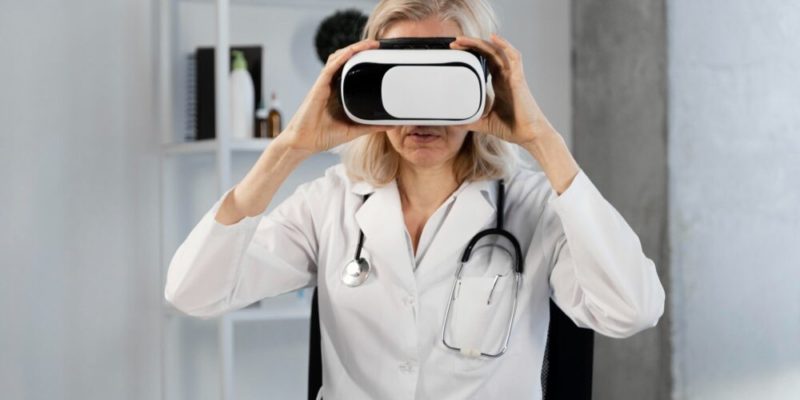In recent years, Virtual Reality (VR) has emerged as a transformative technology across various industries. One sector where VR is making significant strides is healthcare. The immersive and interactive nature of VR is revolutionizing training methods, allowing healthcare professionals to enhance their skills and knowledge in a safe and controlled environment.
This article explores the ways in which VR is transforming training in healthcare and the benefits it brings to medical professionals and patients alike.
Enhanced Learning Experience
VR technology offers a highly immersive and realistic learning experience, enabling healthcare professionals to practice procedures and scenarios in a virtual environment. Medical students and trainees can simulate complex surgeries, interact with virtual patients, and gain hands-on experience without the risk associated with real-life situations. This enhanced learning experience helps to improve critical decision-making skills, surgical precision, and overall confidence.
Safe and Controlled Environment
One of the significant advantages of VR training in healthcare is the ability to create a safe and controlled environment. Medical procedures can be simulated with precision, replicating real-life scenarios while eliminating potential risks to patients.
Healthcare professionals can practice intricate procedures repeatedly, refine their techniques, and learn from their mistakes without compromising patient safety. This aspect of VR training contributes to reducing medical errors and improving patient outcomes.
Interactive Skill Development
Medical virtual reality training provides an interactive platform for skill development. VR simulations can mimic diverse patient cases, allowing healthcare professionals to encounter a broad range of conditions and practice appropriate diagnosis and treatment plans.
This interactive learning approach promotes active engagement, critical thinking, and problem-solving skills among medical professionals, ultimately enhancing their competence and adaptability in real-world healthcare settings.
Collaboration and Teamwork
VR training in healthcare also fosters collaboration and teamwork among medical professionals. Multiple individuals can participate in a shared virtual environment, enabling collaborative decision-making, communication, and coordination during complex procedures.
This aspect is particularly beneficial for interprofessional training, where physicians, nurses, and other healthcare providers can work together to simulate and address challenging medical situations, improving overall teamwork and patient care outcomes.
Addressing Psychological and Empathy Training:
Apart from technical skills, VR is increasingly being utilized to address psychological aspects and empathy training in healthcare. Virtual simulations can create scenarios that expose medical professionals to emotionally challenging situations, such as dealing with patients in pain or distress.
By experiencing and responding to these scenarios in a safe virtual environment, healthcare providers can develop greater empathy, bedside manner, and communication skills, which are crucial for patient-centered care.
Remote and Accessible Learning:
VR technology also offers the potential for remote and accessible learning in healthcare. Geographical barriers and limitations of physical training facilities can be overcome through virtual simulations.
Medical professionals in remote areas can access high-quality training programs and gain valuable experience without the need for travel. Furthermore, VR training can be tailored to individual learning needs, allowing healthcare professionals to learn at their own pace and revisit specific modules as required.
Conclusion
Virtual Reality is revolutionizing training in healthcare by providing an immersive, safe, and interactive learning environment. Through medical virtual reality training, healthcare professionals can enhance their skills, improve patient outcomes, and foster collaboration and empathy.
As technology continues to advance, the integration of VR into healthcare education is expected to expand, contributing to a more skilled and competent healthcare workforce, ultimately benefiting patients worldwide.











